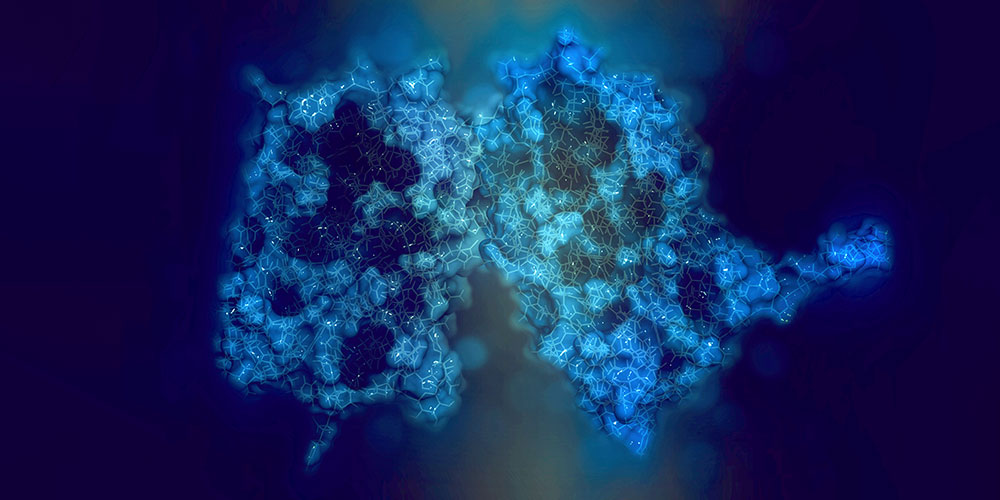Michael Hall awarded honorary doctorate from the University of Geneva
The University of Geneva has awarded the biochemist Michael N. Hall, from the Biozentrum of the University of Basel, an honorary doctorate. With this distinction, the university is recognizing his outstanding scientific achievements and his continued commitment to the institution.
14 October 2016
At a formal ceremony on Dies academicus, the “Day of the Academics” celebrated annually, Prof. Michael N. Hall was awarded the highest distinction from the University of Geneva: Doctor honoris causa. The honorary doctorate is in recognition of both his extraordinary scientific achievements and his sustained commitment to Geneva’s university in various capacities, including serving on the Louis-Jeantet Foundation Council and the External Scientific Advisory Board of the Faculty of Medicine, as pointed out by the Dean of the Medical Faculty Prof. Henri Bounameaux.
“It is a great honor to be recognized by the University of Geneva,” says Hall, who, for almost 30 years, has been conducting research and teaching at the Biozentrum of the University of Basel. “To be recognized by one’s peers is the highest honor a scientist can receive. Of course, it is also recognition of the many talented students, postdocs and colleagues with whom I have had the good fortune to work,” says Hall. “The University of Geneva is outstanding and it is gratifying to know that I was able to serve such an institution. Finally, to receive an honorary doctorate from Geneva has extra meaning personally because Switzerland is my adopted country - it makes me feel a little more Swiss.”
TOR – A key protein
How does a cell know what size it should become? How exactly is its growth controlled? These are questions that Hall is investigating in depth in his research. The great breakthrough, which has earned Hall so many distinctions in the last years, took place about 25 years ago. He discovered a protein in yeast that was inhibited by the anti-cancer agent rapamycin. This also led to the protein’s name TOR – target of rapamycin. Later Hall and colleagues discovered that TOR is indeed the key regulatory element of cell growth and is not only found in yeast but also in higher organisms such as mammals.
“For me, the most significant finding”, says Hall, “was that there is a separate, independent signaling pathway controlling cell growth.” Uncontrolled cell growth plays a major role in a range of diseases. Apart from cancer, also common disorders such as obesity, cardiovascular disease, diabetes or Alzheimer’s disease can be traced back to a malfunction of the TOR signaling network.
Award-winning researcher
Michael N. Hall was born in 1953 in Puerto Rico, in the United States, and spent his childhood in Venezuela and Peru. After studying molecular biology, he graduated with his doctorate in 1981 from Harvard University in the USA. He subsequently worked as a postdoctoral fellow at the Pasteur Institute in Paris, France, and at the University of California in San Francisco.
In 1987, the now Swiss-American dual citizen was appointed assistant professor at the Biozentrum of the University of Basel, where in 1992 he became a Full Professor of Biochemistry. Since his promotion to Full Professor, he has served for numerous years as Head of the Division of Biochemistry and as Vice-Director of the Biozentrum. He is a member of renowned scientific associations, such as the US National Academy of Sciences, and is an editor for international scientific journals. In addition, he is currently the Director of the Basel Signaling Alliance, a center of excellence at the University of Basel.
For his scientific achievements, the biochemist has been distinguished with numerous awards including the Cloëtta Prize for Biomedical Research (2003), the Louis-Jeantet Prize for Medicine (2009), the Marcel Benoist Prize (2012), the Breakthrough Prize in Life Sciences (2014), and the Canada Gairdner International Award (2015). In receiving a doctor honoris causa conferred by the University of Geneva, Hall joins a circle of leading personalities, including the former President of the European Commission José Manuel Barosso, the Swiss architect and artist Le Corbusier, and the former UN Secretary General Kofi Annan.


